

2025
Egypt /Germany
Genre: Drama
Stage: Development
Writer & Director: Ahmed Abdalla
Producer: Kesmat Elsayed
In Berlin, Mai is mistaken for a dead woman, Hana’s camera reveals alternate realities, and Haider hears voices from trash cans as he pursues vengeance for his brother’s death. The lives of three Arab immigrants intertwine as they seek new beginnings.
One Long Day in the lives of three Arabs from different countries, social classes, culture and background sharing the experience of creating a new life in Berlin. Their lives intertwine as they navigate their individual paths. May, a Syrian cooking influencer who moved recently to Berlin, encounters a mysterious man who mistakes her for someone else called Razan who died 10 years ago in Aleppo.
Hana, a divorced young Egyptian woman, discovers a peculiar vintage camera with a glitch that shows glimpses of alternate realities, the same day of her ex’s wedding in Cairo. Haider, an Iraqi waiter finds himself captivated and concerned by the peculiar music emanating from trash cans, needs a gun to protect himself while searching for a Turkish human trafficker and faces threats from Turkish and Lebanese gangs.
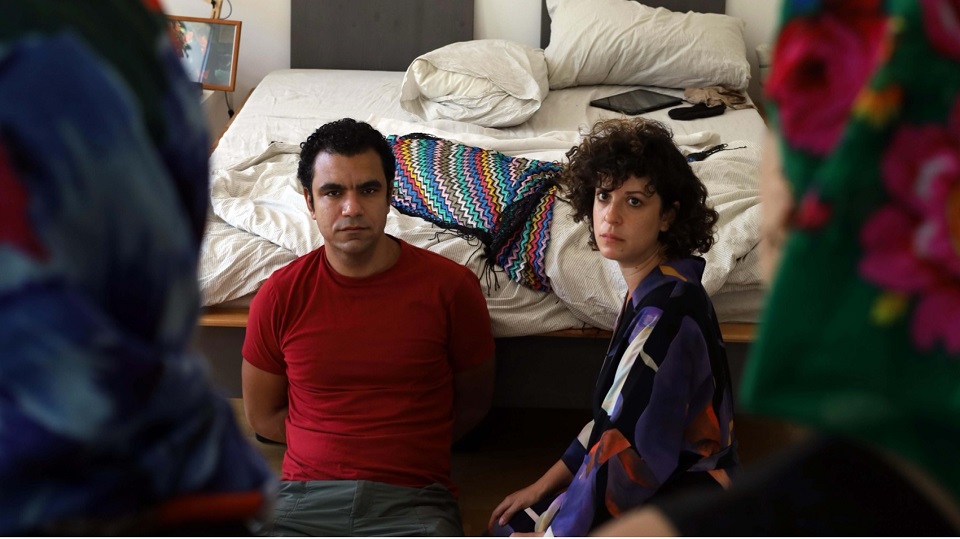
2025
Egypt / Germany
Genre: Drama
Stage: Development
Writer & Director: Sondos Shabayek
Producers: Kesmat Elsayed / Laura Kloeckner
An independent Cairene woman is entrapped in a room with her house keeper, conservative cousin, and se-cret boyfriend. She has to confront him about last night but to do so she has to reveal his identity, and their relationship to the two women, and risk it all.
In her flat in Cairo Sara (36 years old, middle-class woman who lives on her own) hears a loud scream and a bang and rushes out to the hall to find Karima her cleaning lady (38-year-old sturdy woman, dressed in a long galabeya), and her cousin Hoda (25-year-old conserva-tive girl, wearing a headscarf) standing next to the body of a man on the floor with an injured head. Hoda saw him sneaking and thought he was a thief and hit him on the head. Together the three women decide to tie him up and drag him to the bedroom, till help arrives.
The story entangles when the man is conscious and reveals that he is Sara’s boyfriend. They doubt his story but when Sara’s responses don’t make sense or add up they start to attack Sara for lying and question her motives for wanting to stop him from leaving.
Meanwhile, all Sara wants is to face Omar about her painful memory of what happened between them last night.
As pressure and tension escalate in the room, Sara insists that Omar can’t leave before they talk. When the two women take his side and attempt to free him, she locks them all up in the room. Now she can not face Omar without facing both Hoda and Karima, and to do so she will have to risk it all, and openly share her story about last night.
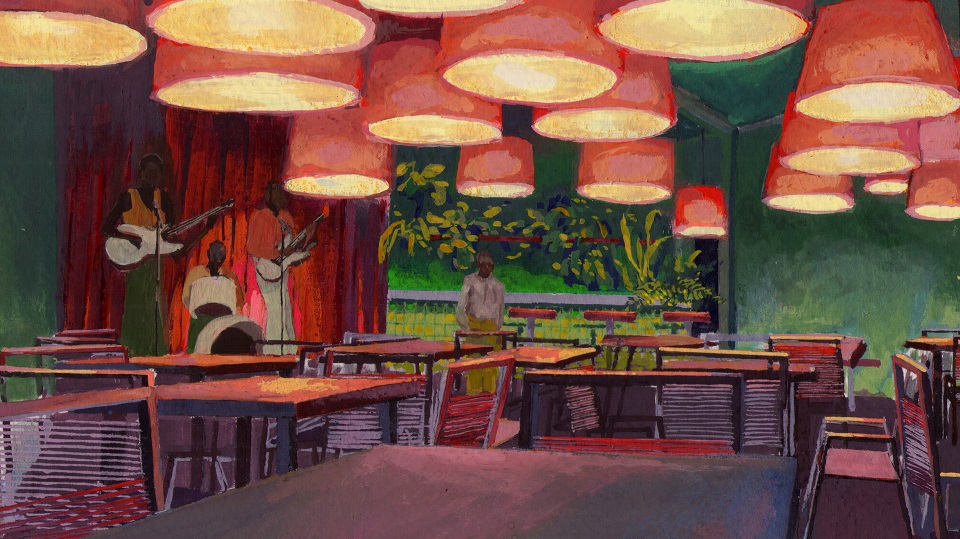
SEGURA PARA MIM O TEMPO
2026
Angola / Germany / Portugal / Spain / France
Genre: Drama, Afro-Surrealism
Stage: Development
Writer & Director: Fradique
Producer: Laura Kloeckner
A young Angolan stamp painter embarks on a surreal quest in search of a vanished Cuban biologist in a world amidst environmental collapse, where nature speaks and the capital drifts away from the mainland.
When Luanda is sinking because of water boreholes, TwentyEight, a grieving young stamp painter working for the National Archive is assigned by his neighborhood council to find Zoila – an accentric and lonely veteran Cuban biologist. Zoila has been missing for 30 years in the interior of Angola, after participating in a secret expedition to find a new land to be the future capital of the country during the socialist regime. The Film is a road trip of collective change and confrontation with the paon of loss, that is still sought in the forgotten utopias of an abandoned country. When we lose someone we love or wake up from a dream, time slips through our hands and our memory tries to resist by creating new paths. But in a not-so-distant future where the consequences of climate change are extreme, impossible to circumvent and where hope for new ways forward might come from where you least expect it. Just like a poem, the film builds on that utopian will that only memory and art allow: to hold time – at least enough for us to remember a new path.

TIME HUNTER (USA | NAMIBIA | GERMANY)
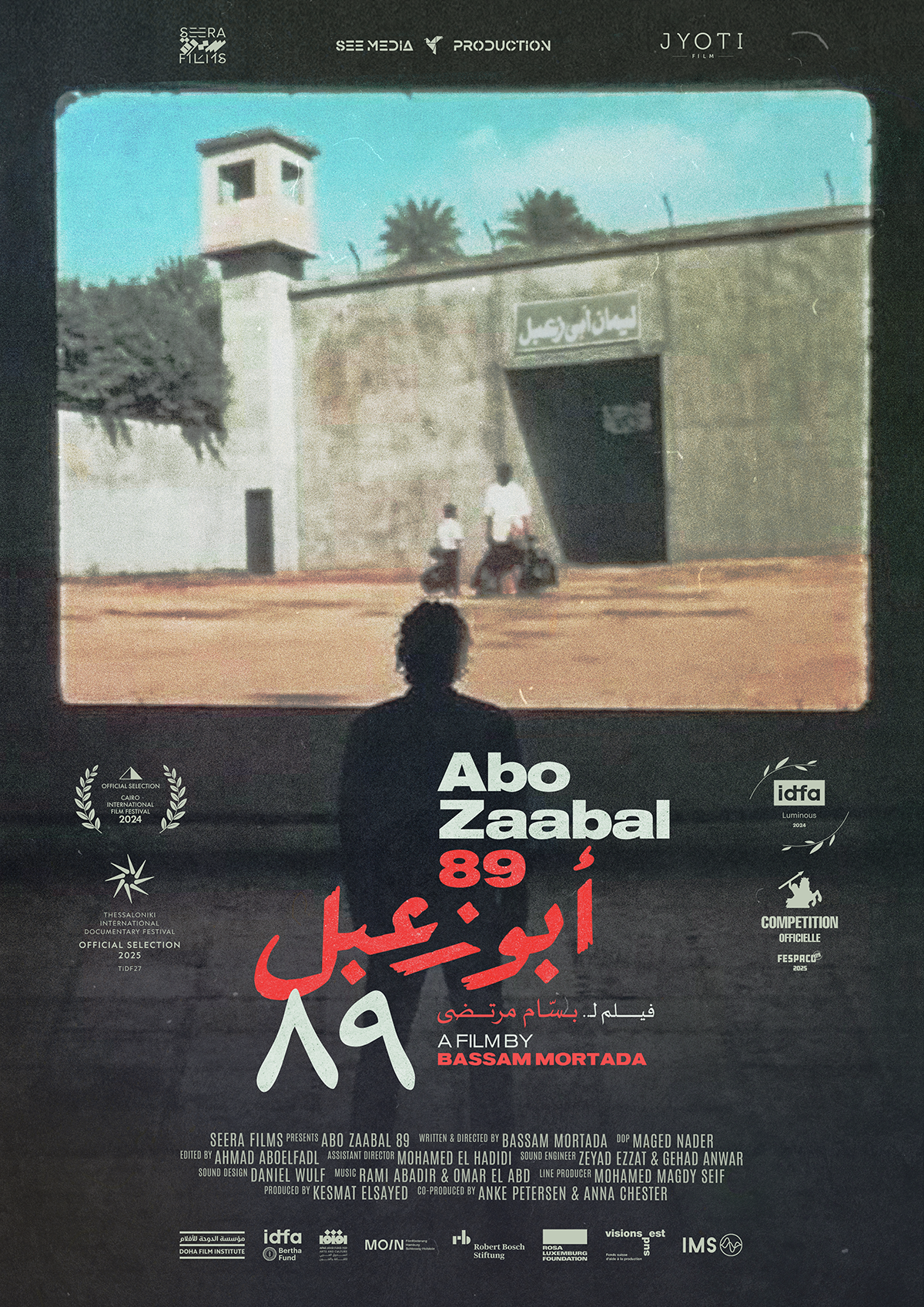
A film by Bassam Mortada
Documentary, 83min, HD
Director of photography: Maged Nader
Producer Egypt: Kesmat ElSayed
Co Producers Germany: Anna Chester, Anke
Petersen
Country of production: Egypt, Germany
Original language: Arabic
Bassam Mortada was five years old when he first visited father Mahmoud in the notorious Abo Zaabal prison. With
the police raid still fresh in his mind, his experience was dominated by incomprehension. But in the years that
followed, resentment took hold. Bassam was raised by his mother Fardous, a socialist activist herself. As a single parent, her life was hard, and when Mahmoud was finally released from prison he seemed like different person. He left for Vienna, and for a second time she was left behind, this time embittered. Bassam grew alienated from both, suppressing his own trauma and confusion.
In this documentary, he films his efforts to renew and restore relationships with his parents and find a path to historical truth, emotional comprehension and psychological healing, as he tries to reconstruct how his parents’ political activism has shaped their family. Through conversations with his parents and their friends, the cassette tapes his father sent from Vienna, a theatrical monologue by his father’s best friend, newspaper archives and found footage, he shows the impact of the “big” history of Egypt on the “small” history of his family.
WORLD PREMIERE CAIRO INTERNATIONAL FILM FESTIVAL CIFF
INTERNATIONAL PREMIERE INTERNATIONAL
DOCUMENTARY FESTIVAL AMSTERDAM IDFA
AWARDS
Best Feature Documentary Award
The Africa No Filter Special Jury Award
International Critics Week Special Mention

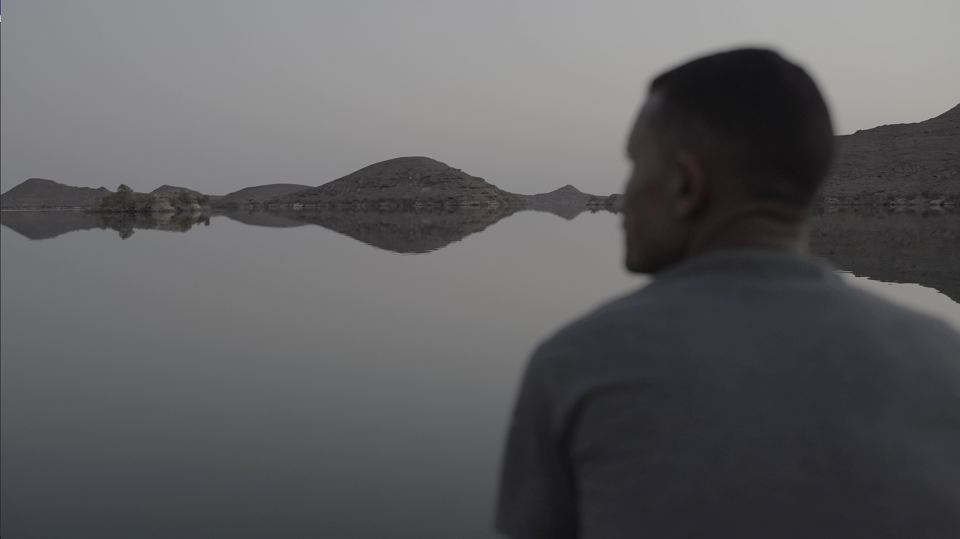
Documentary
2025 / 90 I 52 min
Egypt / South Africa / Germany
Genre: Investigative / Environment
Stage: In production
Director: Omar Manjounah
Producers: Laura Kloeckner / Kesmat Elsayed
Environmental researcher Mohamed Ezat returns to Lake Nasser with one mission: saving the crocodiles from disappearing. Will the experiment of a single young researcher and his crew succeed in stopping the hunters and fishermen on the lake and save the oldest surviving creatures from extinction?
When passionate environmental researcher Mohamed Ezat returns to Lake Nasser after many years abroad he faces a shocking discovery: The Nile crocodiles are disappearing in unimaginable numbers. The fishermen have changed their fishing habits to target the largest organism of the lake’s food chain, threatening their existence to near extinction. As the crocodiles’ very existence teeters on the edge, Ezat takes action. He pairs with one of his best friends and fellow scientist Amr and a crew of dedicated lonestars, intimately familiar with the region, who seek to evoke change, not only within the local communities but also on a global scale.
During the day we accompany the crew on the boat immersing into a wide panorama of personalities they encounter along the way. From former poachers who turned into biodiversity advocates to the denizens of fishermen’s abodes, the villages, and sprawling islands dotting along the lake, each individual contributes a unique thread to a mosaic of relationships and histories. This amalgamation of stories crafts a captivating tableau of the intimate interplay between this secluded corner of the nation and its resplendent environment, a realm largely concealed from the outside world’s gaze. But with dwindling crocodile sightings and harsh set- backs, tough decisions lie ahead. Is it time to give up or continue the mission?
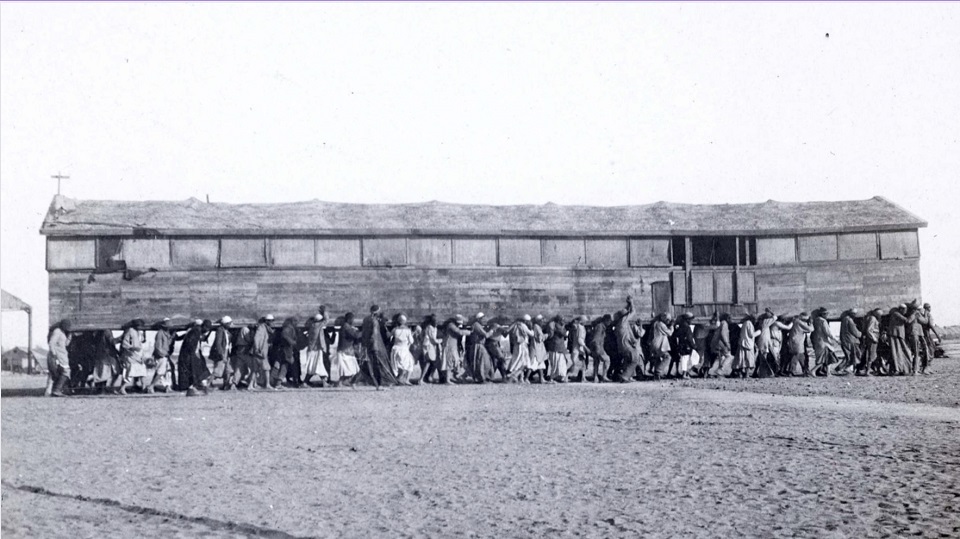
Hybrid Documentary
2026 / 80 I 52 min
Egypt / Germany
Genre: Animation / History
Stage: Development
Director: Alaa Dajani
Writers: Kesmat Elsayed & Alaa Dajani
Producers: Kesmat Elsayed / Laura Kloeckner
An extraordinary story of a young peasant, Younis Abdalla, brought to the front lines of the First World War in France only to find himself merely escaping a massacre by the allied forces that recruited him. An untold history of survival, invisibilized labor and colonialism.
Younis Abdallah, a young peasant from Al-Himamiya village in Upper Egypt did not know what conscription to the Egyptian Labour Corps would entail. Young, shy and naive, he is brought from his peaceful village to the front lines of WW1 in France. By 1917, 300,000 or more peasants were forcefully conscripted into the Egyptian Labor Corps. Younis Abdallah was one of the few surviving memories. When his mentor Sheikh Abbas is captured to be sent to the war front, Younis decides to volunteer in his stead. Onboard the ship to Calais, he forms a friendship with Quabaisy, a more free spirited peasant from a neighboring village whose later death ignites Younis into protest. He is put into a group led by Sabet Haroun, a strong and proud leader who leads work strikes and becomes a role model for Younis. We follow Younis as he sheds his shell and realizes the power he possesses and that of his group.
Woefully unequipped, he endures many adversaries as he is stripped, shaved, humiliated, punished and almost killed. But at the same time through the collective spirit that is built in the group through songs, dances, jokes and theater we see him transform into a hero. When Younis survives the massacre executed by the British against them for protesting their work conditions and manages to return and tell his story he becomes a catalyst in fueling the biggest peasant revolts in twentieth-century Egypt, the 1919 revolution.
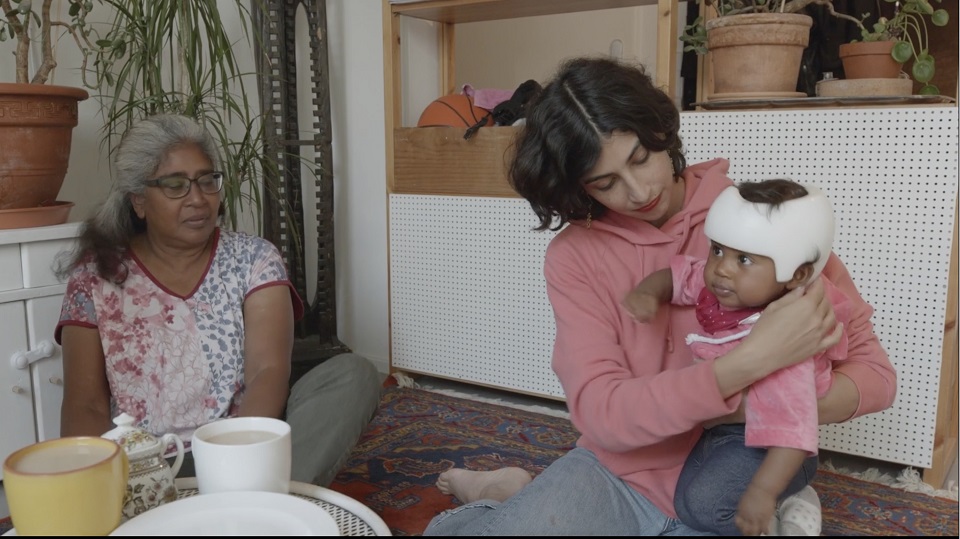
(OT: Mutter/Sprache) 2026
Germany
Genre: Documentary
Stage: Development
Writer & Director: Mala Reinhardt
Producer: Laura Kloeckner
One family, six dialects: How the British Empire shaped my family history..
MOTHER/TONGUE explores the profound impact of British colonial rule on the use and transmission of mother tongues within the filmmaker’s family. The narrative delves into the intricacies of intercontinental communication within the family, encompassing diverse English dialects from Australia, New Zealand, Malaysia, India, Germany, and Britain. Through the examination of archival materials, the film uncovers the historical decisions made by British politicians that significantly shaped the migration history of the filmmaker’s family.
A mother tongue is more than the first language; it might be considered as the most formative linguistic element. It’s the language that plays a pivotal role in shaping identity, fostering a sense of belonging, and establishing connections with a specific region and country. Within Mala’s family, a different language has been passed down from mothers to their children, spanning over five generations. This linguistic disinheritance serves as a tangible reflection of the enduring effects of British colonial rule. Through the lenses of language, identity, and migration, the film intends to weave a rich tapestry connecting individual experiences to larger historical forces. Or rather make a patch? A collection of intimate stitches around the deep and lasting impact of colonial decisions on the fabric of our contemporary society, something that is largely silenced in contemporary European discourse.